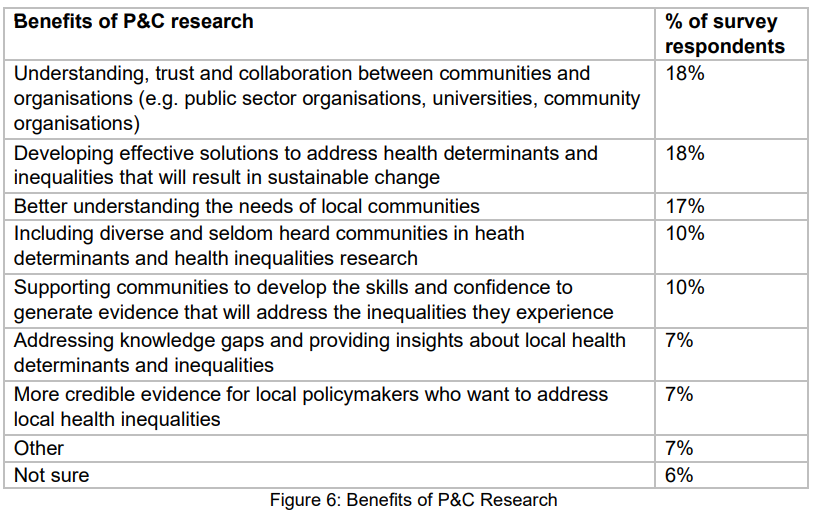Three in four (75%) community organisations in our survey reported they include efforts to implement findings through community organising, campaigning, or policymaking. In contrast, with a greater focus on contributing to academic knowledge, university research rarely have the time and resources to actively drive change (8%), instead primarily relying on disseminating findings through academic outputs as the standard approach to influence policymakers and encourage policy implementation.
Respondents highlighted impact and benefits of P&C research (see Figure 6). P&C researchers identified the improvement of understanding, trust, and collaboration between communities and all other stakeholders as the most significant benefit. Public sector representatives placed equal value on these aspects and on enhancing the understanding of local community needs. Community organisations and 27 universities prioritised the development of effective solutions and addressing inequalities.

Implementing research recommendations through policy and system change was identified as a top challenge of P&C research by 27% of survey participants (Figure 4), particularly among community organisations and P&C researchers. Organisation representatives noted several barriers to implementation, including a lack of support from policymakers (17%), insufficient funding to implement recommendations (17%), and policymakers' lack of understanding and appreciation for evidence generated from P&C research (15%). Community organisation survey respondents consider all these factors equally important, while public sector and university representatives see lack of funding as the biggest barrier.